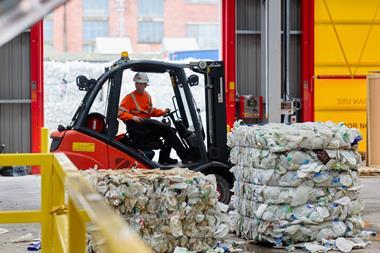From Sir Harry Kroto
Fundamental advances in the chemical sciences are today more vital than in any other area for survival of the human race and the sustainability of our modern way of life.
The chemical sciences underpin, in the most fundamental ways, the cutting edge areas of nanoscience and nanotechnology, materials science and engineering, condensed matter and molecular physics; all areas where some of the most exciting advances are presently being made.
Alasdair Smith, Sussex university’s vice-chancellor, apparently said that he did not accept that ’a serious science university must have a chemistry department’. That would be true if the university had departments of nanoscience and nanotechnology, materials science and engineering, condensed matter and molecular physics.
The vice-chancellor of a major university cannot afford to be so cavalier. Smith made the decision to close down chemistry without consultation with the Sussex chemists who could have advised him on the foolhardiness of this course of action.
The decision evoked condemnation from every UK sector and it became immediately clear that chemistry at Sussex must be defended or else the university would drop into the third division. The prescient strategy formulated by Sussex chemists with the help of associated Sussex science departments stands as a beacon for other universities to follow in solving the serious financial, educational and cultural issues they have to confront.
In the face of well thought out educational and financial arguments, as well as the development of a detailed positive strategy to address the issues, cultural issues triumphed.
At last people have realised that such questions as: What is a university? What is important for our students? What is important for general education? What is important for society and industry? are legitimate issues for universal debate.
It has been an important lesson that vice-chancellors should not be allowed to make unilateral, undemocratic bad decisions when the future well-being of the country is at stake.
It is truly heartening that the original irrational proposal has been overthrown.
H W Kroto CChem HonFRSC
Florida State University, US
From Jim Miller
Heartiest congratulations to the Chemistry World team for the remarkable achievement of the Periodical Publishers Association’s (PPA’s) monthly business and professional magazine of the year award. Richly deserved, and the foundation I am sure for the still greater success of Chemistry World.
RSC Council spontaneously applauded this news, and we look forward to an appropriate celebration soon!
In its editorial content and growing advertising revenue Chemistry World very clearly goes from strength to strength.
J N Miller CChem FRSC
Chair of RSC publishing board
Bianca Gerlinger
Congratulations on winning this year’s PPA award for monthly business and professional magazine of the year. I attended the award dinner and saw the team take the prize.
We were all very impressed by how you, as a society publisher, have delivered a strong product to the magazines market, which is highly competitive and challenging. The quality of entries was again very high this year and competition in this area comes from strong players in the market, so well done for having competed so successfully.
B Gerlinger
The van Tulleken Company
From Alan Comyns
In the current debate over the unpopularity of chemistry among young people, one factor that has been ignored is the demise of the home laboratory.
My lifelong interest in chemistry was triggered by the gift of a small chemistry set when I was 11. It contained 10 test tubes with various salts, a test tube rack, and a small Bunsen burner. I soon exhausted the experiments described, and needed to widen my source of supplies. A local pharmacist, who recognised a kindred spirit, sold me chemicals from his stock and ordered more exotic ones from BDH.
In Tottenham, UK, there was a pharmacy that specialised in supplying the home laboratory market and published a detailed catalogue of chemicals and apparatus. Later, I patronised Griffin and Tatlock in Kemble Street in London. So there was no difficulty (even in wartime Britain) in obtaining the chemicals and apparatus needed for a fairly comprehensive home laboratory.
I probably had about a hundred different chemicals, including a few ’dangerous’ ones such as strong sulfuric acid, metallic sodium, and ether. Experiments with these formed the basis of a long career in industrial chemical research. I don’t recall ever having had an accident.
I was not unique; several of my school friends had similar collections of chemicals and we used to swap them among ourselves to fill gaps in our collections. All my work was done in my modest bedroom and the chemicals were stored in a hospital bedside cabinet with a tiled top.
We should also record and deplore the decline of lecture bench demonstrations in schools and universities.
With the coming of the supercautionary culture and the emasculation of the chemistry set, all the fun has gone out of chemistry and I am not surprised that today’s youth has lost interest in it.
A E Comyns CChem FRSC
By email












No comments yet